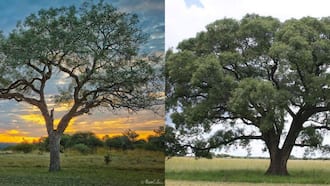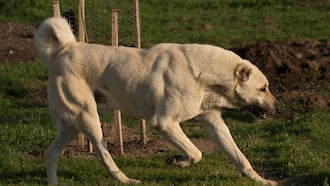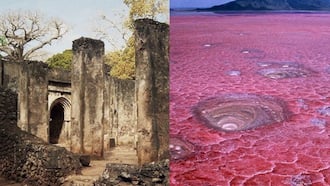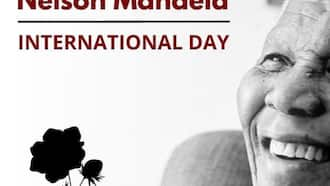Types of African tribal masks, their meanings and pictures
Why do Africans make masks? African tribal masks have, for the longest time, played a vital role in celebrations, rituals, and tribal initiations. Due to its diversity in cultures, Africa has a rich history of making and wearing masks. Most masking rituals are accompanied by song, dance, and prayer.
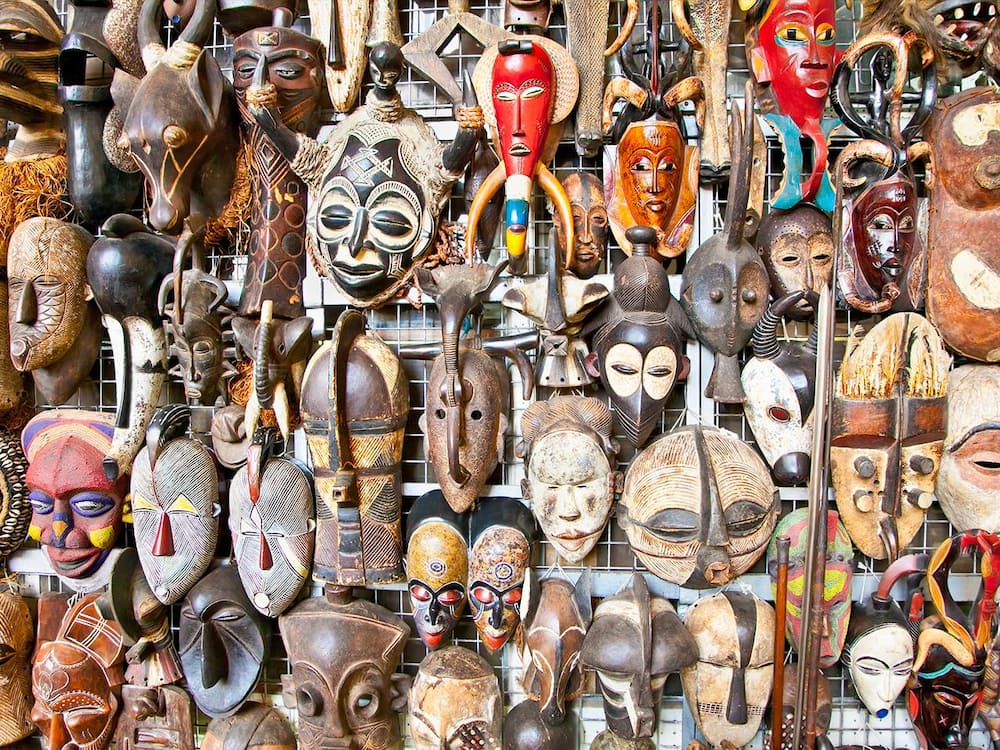
Source: UGC
Different masks from various African tribes are worn for specific reasons. For instance, some are used as power icons to chase away evil spirits, while others are for celebratory purposes and thanksgiving after a successful harvest. Among the people who wear African masks, there are the traditional healers, rainmakers, and young boys during their initiation into adulthood. Take a look at the various types of African masks and their meanings.
African tribal masks and meanings
What are the types of African masks? Masking rituals are most common in West Africa, the Congo, Mozambique, and parts of Tanzania. There are thousands of communities in Africa with masking rituals. Here are some popular African mask images and their meanings.
1. Bamileke mask
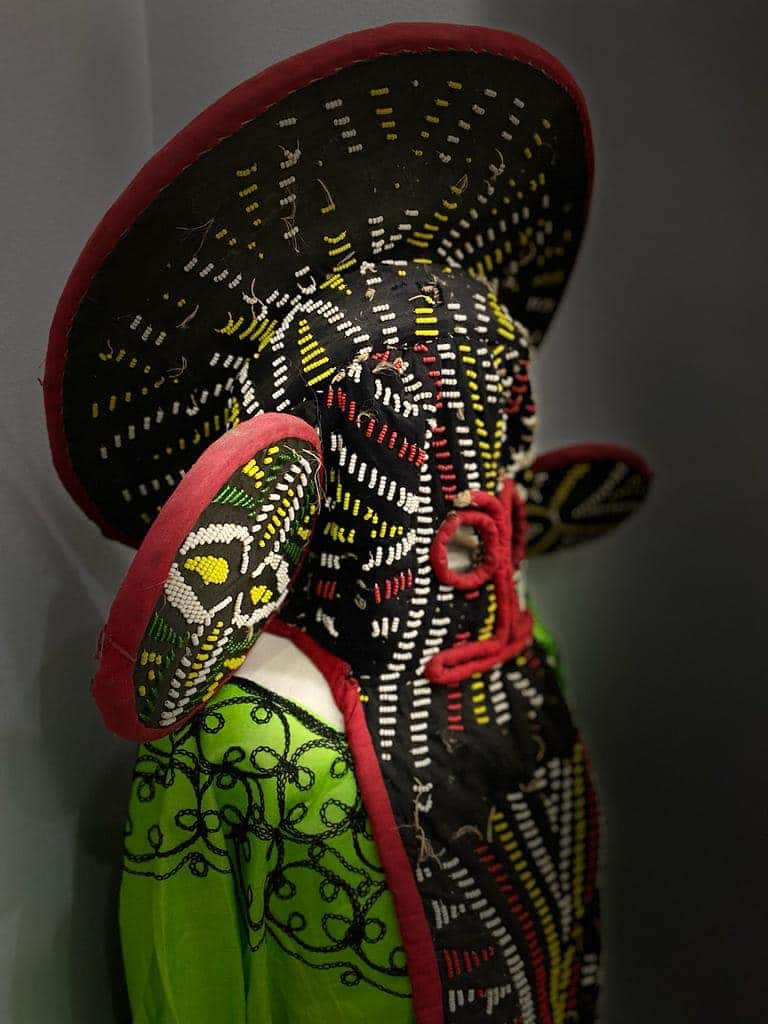
Source: Facebook
This African mask has its origin in Cameroon. This cover is created in honour of the king and prominent chiefs. The masks are decorated with colourful beads, which are symbols of great wisdom, while the cowry shells portray wealth.
The Bamileke masks are viewed as objects of power; hence, it is used during crucial ceremonies and rituals to worship the royal ancestors of the present king.
The mask also protects its people and guarantees the fertility of the land and the women in the community. Due to this, Bamileke masks are worn during planting and harvesting, war expeditions, the annual dry season festival, and the opening of the royal hunt.
2. Pende mask
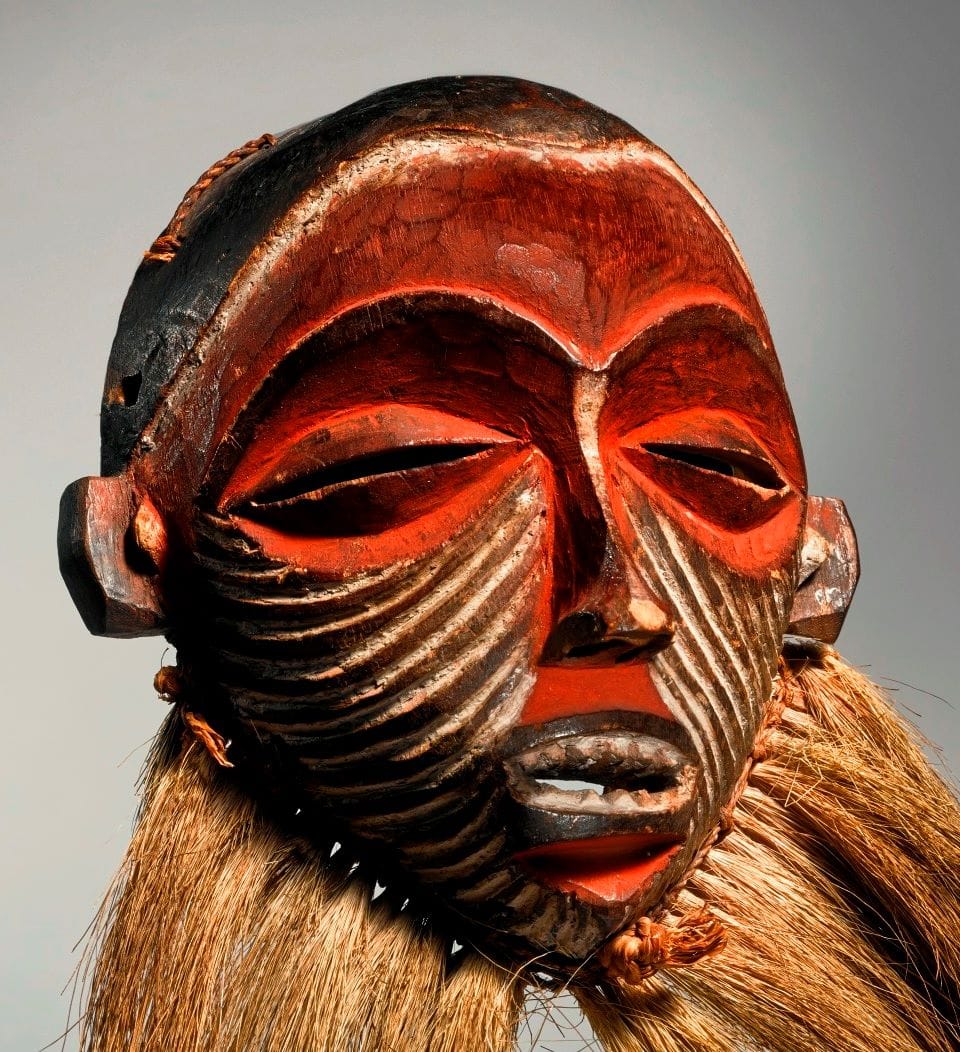
Source: Facebook
The Pende mask is worn by the Kasai Pende community, which resides in the eastern part of their territory in the Democratic Republic of Congo. This tribal mask combines the human and buffalo features and is decorated with engraved triangular grids painted with dark and light colourings creating a checkboard effect.
The Pende mask is used to communicate with the spirits during communal rituals. This is because the Kasai Pende believe that the spirits can influence their quality of life either negatively or positively. It is also hung above the door or window of the chief's office.
3. Yohure mask
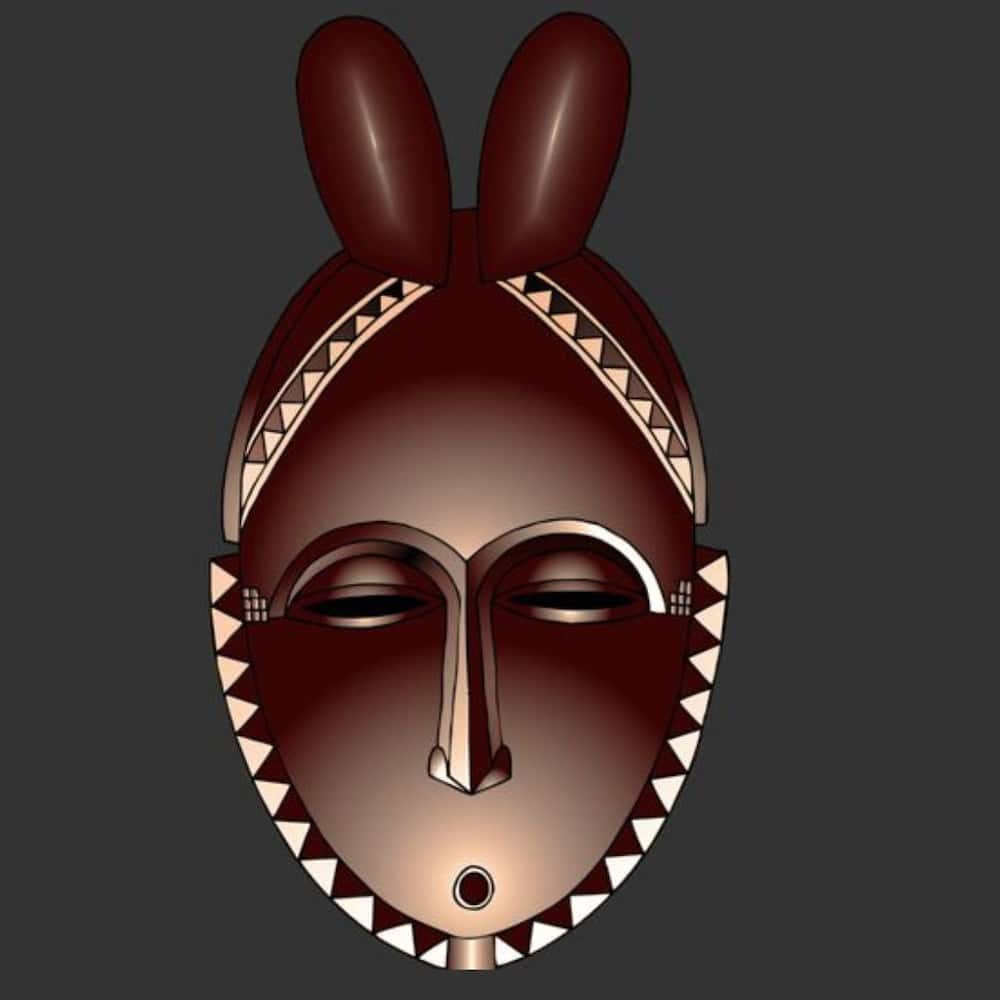
Source: Facebook
The Yohure is a carefully crafted mask with a blend of human and animal characteristics. It has horns, stretched face with a high forehead, arched eyebrows, and a low prodding mouth.
This African death mask is worn during dance rituals to aid the villagers in grieving the death of one of them. It is believed that the mask symbolizes the Yu spirits that help to restore the social balance after mourning.
Because the Yohure masks are considered powerful and dangerous, they are kept away from women's sight as it is believed they can harm them.
4. Baule mask
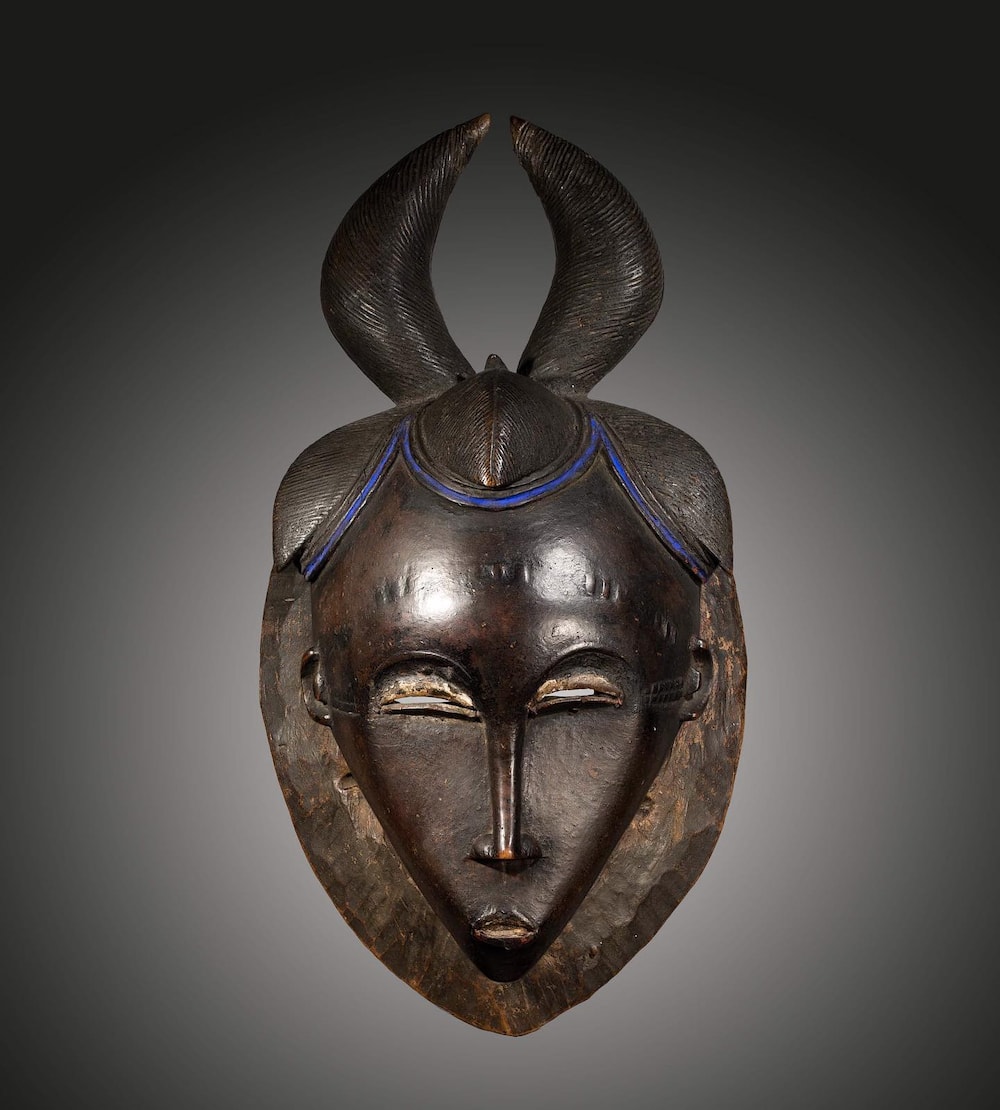
Source: Facebook
The Baule is an African mask with horns. It is also called a Goli mask and is one of the famous West African masks.
This Ghana mask's meaning is majorly about a bush spirit. It is mainly used during cultural dances in the harvest seasons, at the funeral of distinguished figures, and in processions to celebrate eminent visitors.
The Baule mask's circular face signifies the sun's life-giving force, while its horns represent the buffalo's strength.
5. Woyo mask
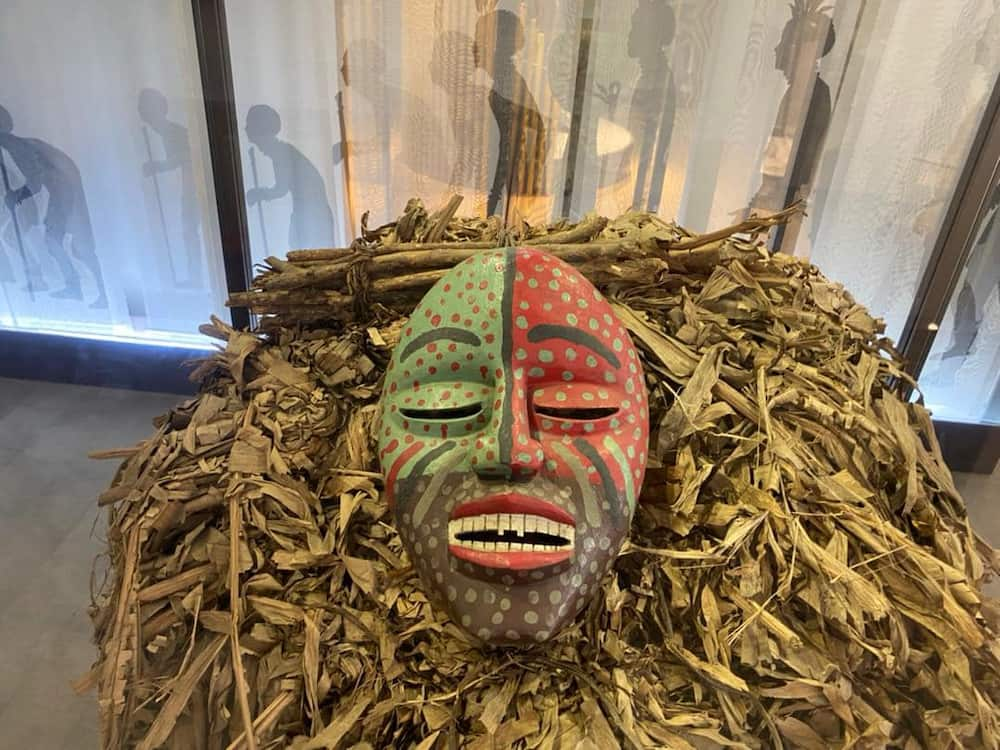
Source: Facebook
The Woyo masks are decorated with contrasting colours on a white background and are worn together with costumes created from banana leaves. The colours painted on the mask have a symbolic meaning, and at times, it gets repainted to renew the mask's power.
Woyo is an African warrior mask created for the ritual dance of the 'ndunga', a male group in charge of maintaining law and order in the community.
Because the Woyo community believes in witchcraft, these masks help them determine the guilt of individuals practising sorcery.
6. Dan mask
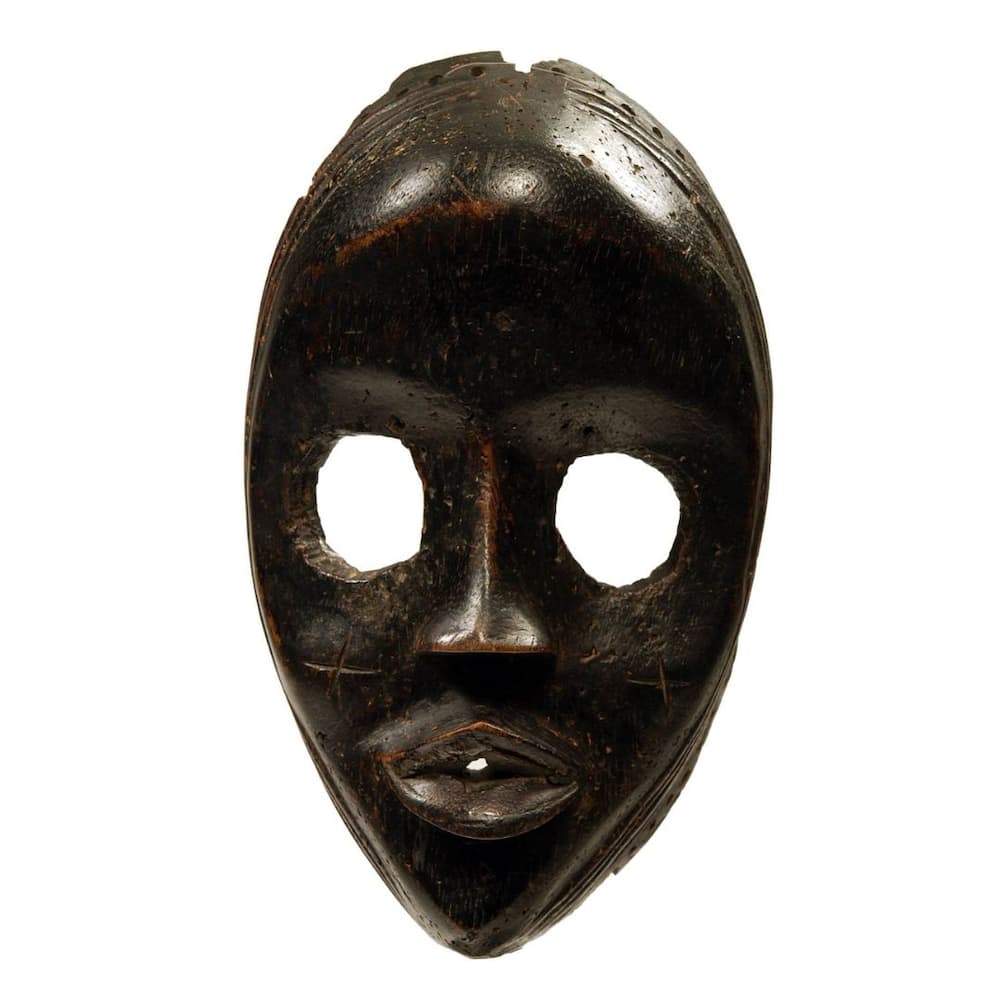
Source: Facebook
The Dan African face mask features a high forehead, a pointed chin, and a pouting mouth. They also have scarification marks that split the forehead and nose. They are made from wood and painted with brown dye.
These masks are considered sacred to protect and communicate with the old spirit world. The Dan tribespeople carries small masks while travelling to give them personal protection.
7. Biombo mask
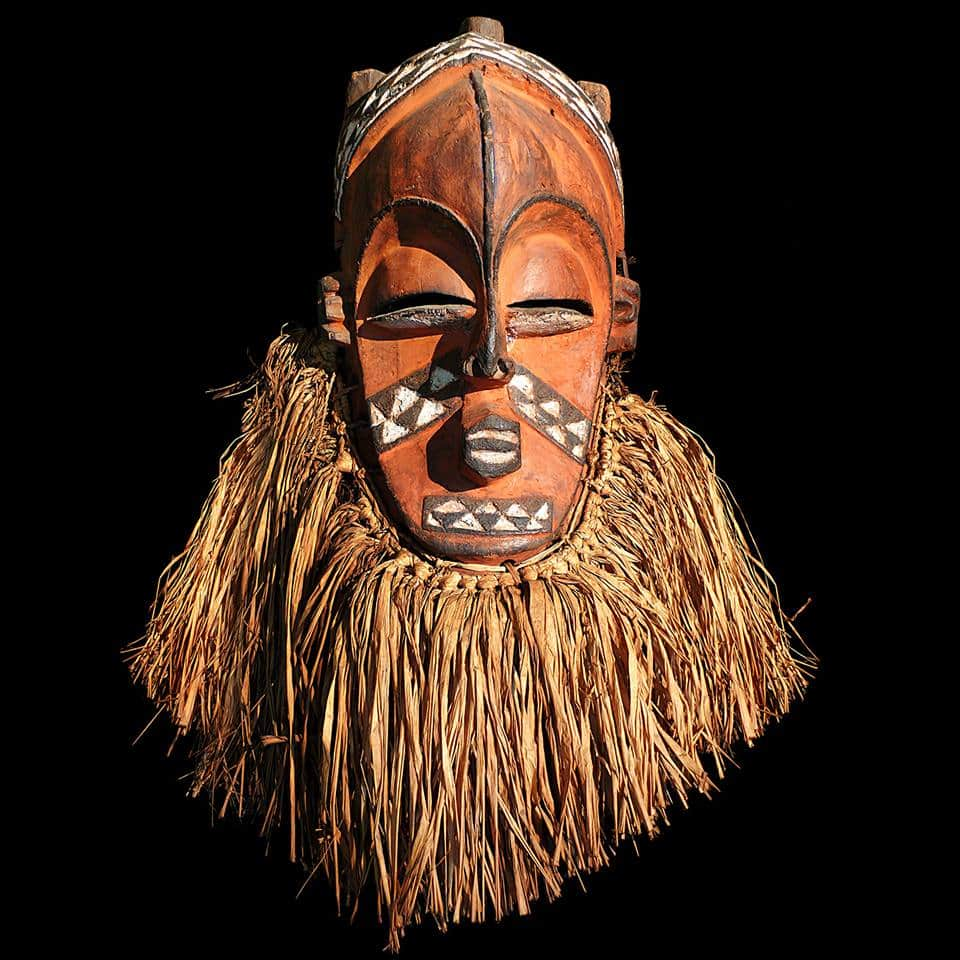
Source: Facebook
This tribal African mask is crafted from wood and stained with red "tukula" powder. It has coffee bean-shaped eyes with a triangular checkerboard design on the eyebrows. The Biombo masks have feathers and are adorned during tribal rituals and ceremonies.
8. Senufo mask
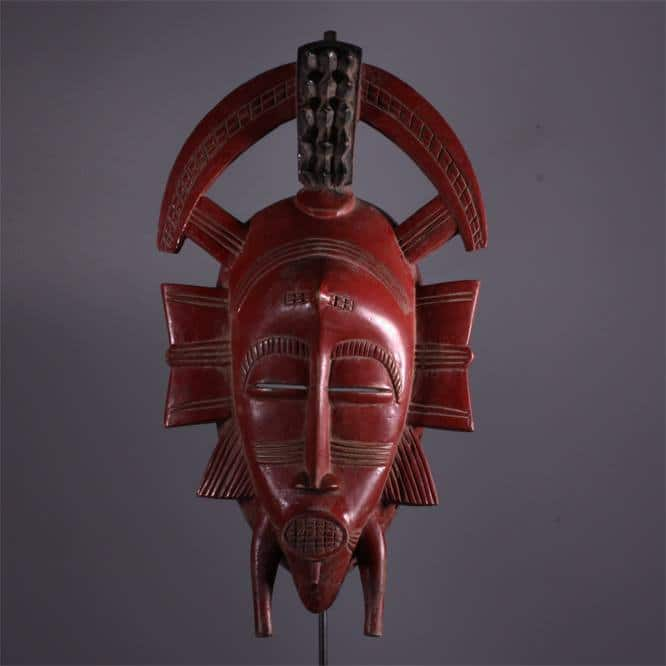
Source: Facebook
The Senufo masks are made by professional artists who reside away from the community. These traditional African masks also combine both human and animal physical characteristics.
Senufo masks are symbols of power and are used as a mode of communication between the living and the spirit world. Besides, the masks teach young men their traditions and responsibilities during rites of passage for the Poro society.
9. Kota mask
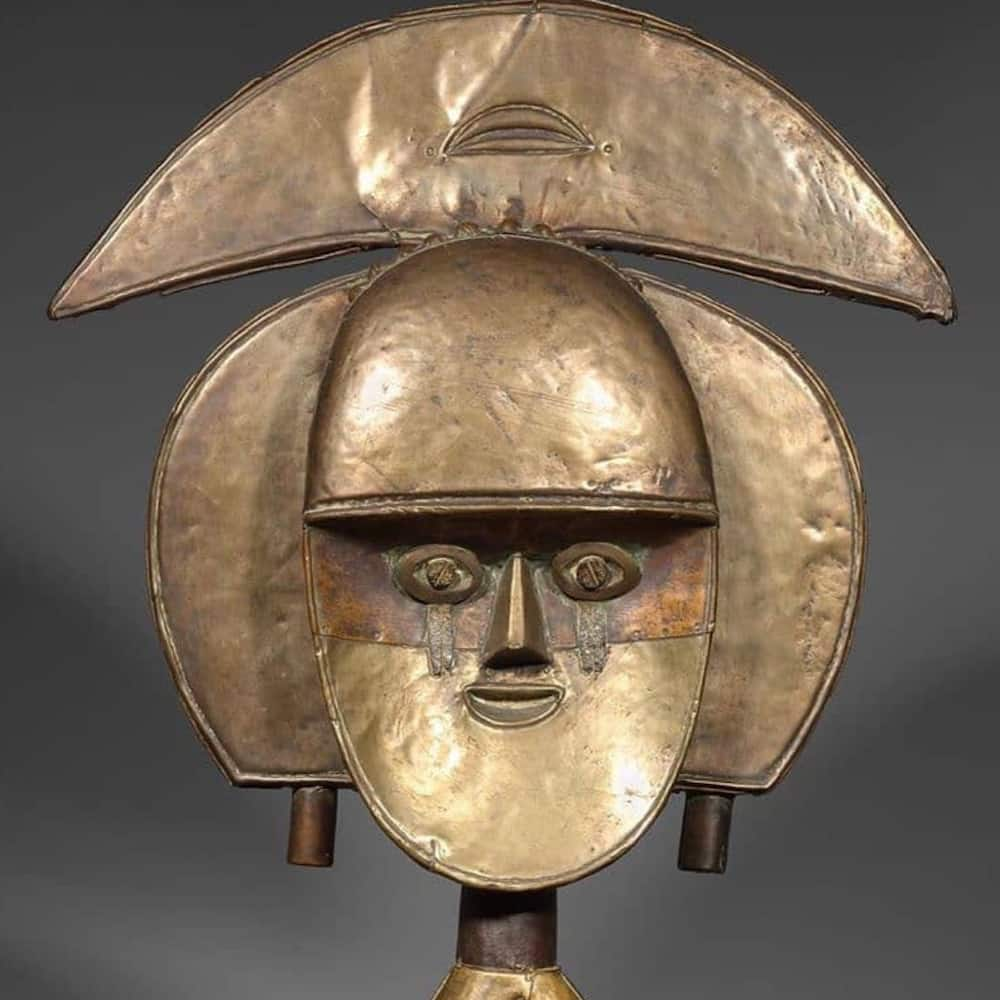
Source: Facebook
The Kota mask possesses stylized heads and simple lozenge-shaped bodies. Convex faces represent males, while concave ones epitomize females.
Some Kota masks have faces on both ends of the head and are referred to as Kota statues caretakers or container figures.
It is believed it safeguards the remnant of ancestors inside a box, basket, or bundle known as "Bwete". The Kota community worships the remains of their ancestors as they believe they have the power to assist them in times of trouble.
10. Ligbi mask
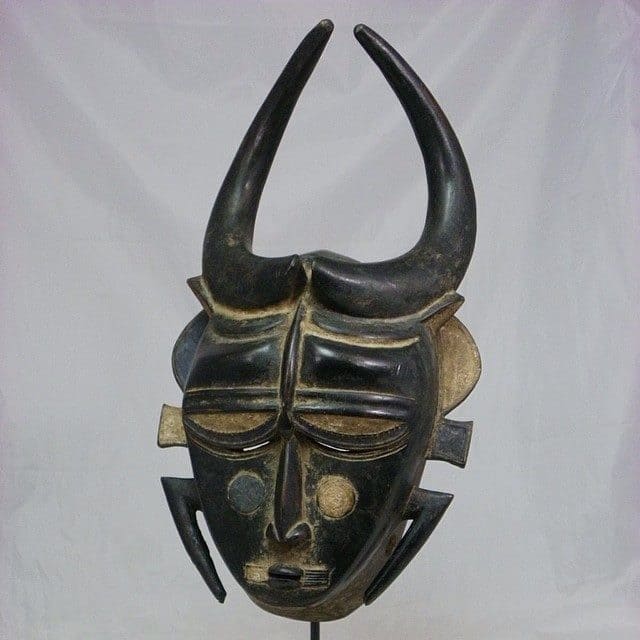
Source: Facebook
These scary African masks, just like others, are carved from wood and combine animal and human features. The mask has an elongated face trimmed with wings on each side. Its eyes are shaded, while its mouth is rectangular.
Ligbi masks are used to mark the end of Ramadhan. The wearers of the mask dance in pairs as they showcase their synchronized movements. Makeup and jewellery are used to complement the Ligbi masks during the celebrations.
11. Bwa masks
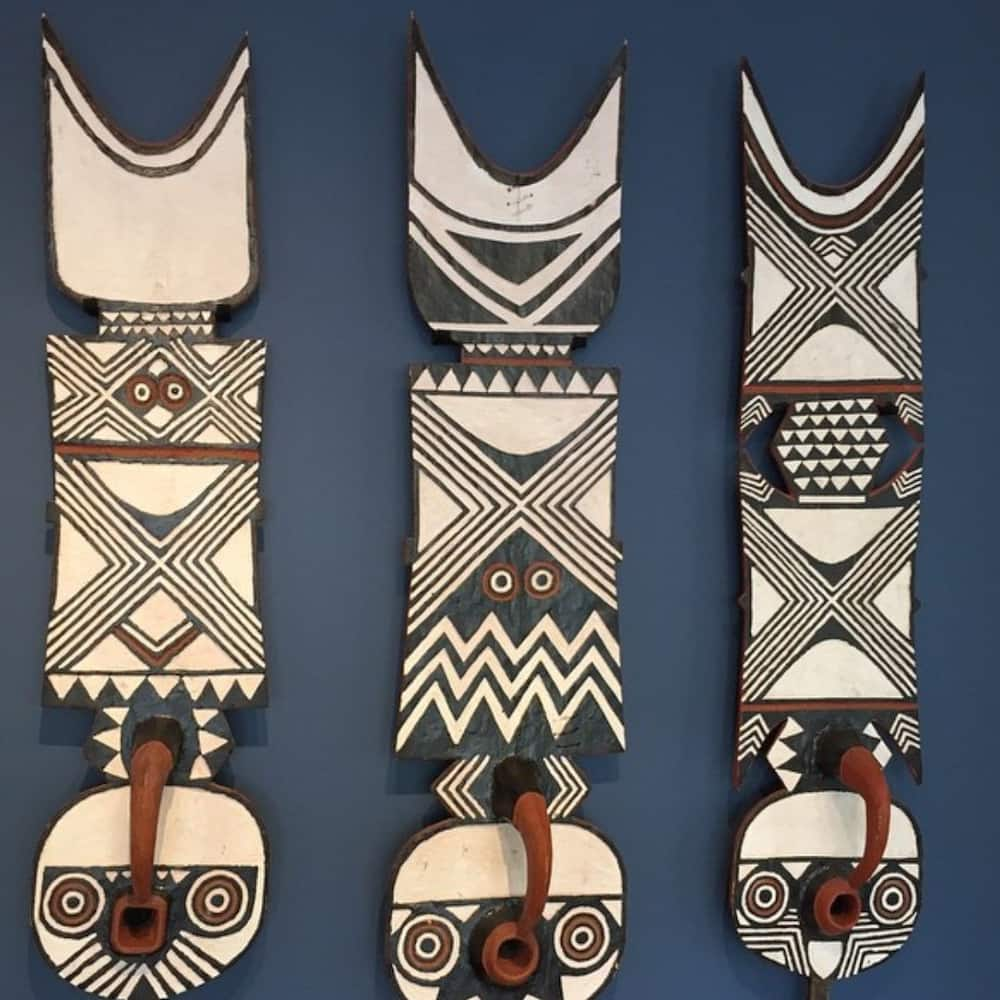
Source: Facebook
The Bwa masks are thought to have special powers that those who wear them can control. These plank-shaped masks have a circular face on one end and a crescent moon on the other.
The eyes are inspired by owls, and the hooked nose is inspired by hornbills. Both of these birds are thought to have magical abilities.
12. Goma masks
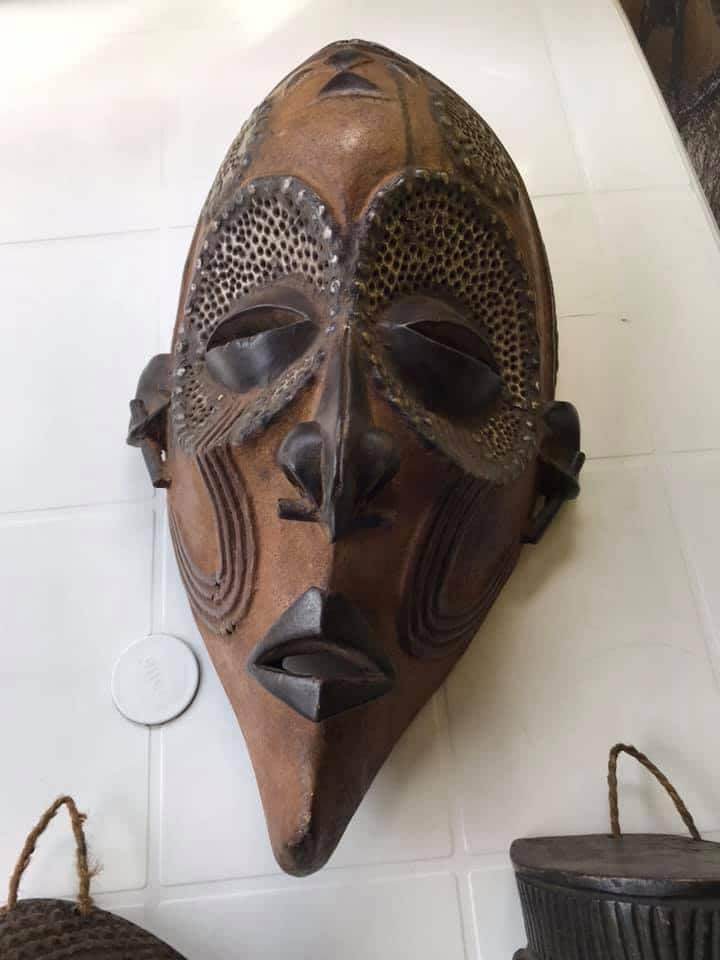
Source: Facebook
The Goma masks are distinguished by their elongated cylindrical forms, domed heads, large concave eye sockets with protruding eyes, and geometric abstract pattern decoration. They are also distinguished by their domed heads, which are sometimes adorned with feathers.
13. Kwele masks
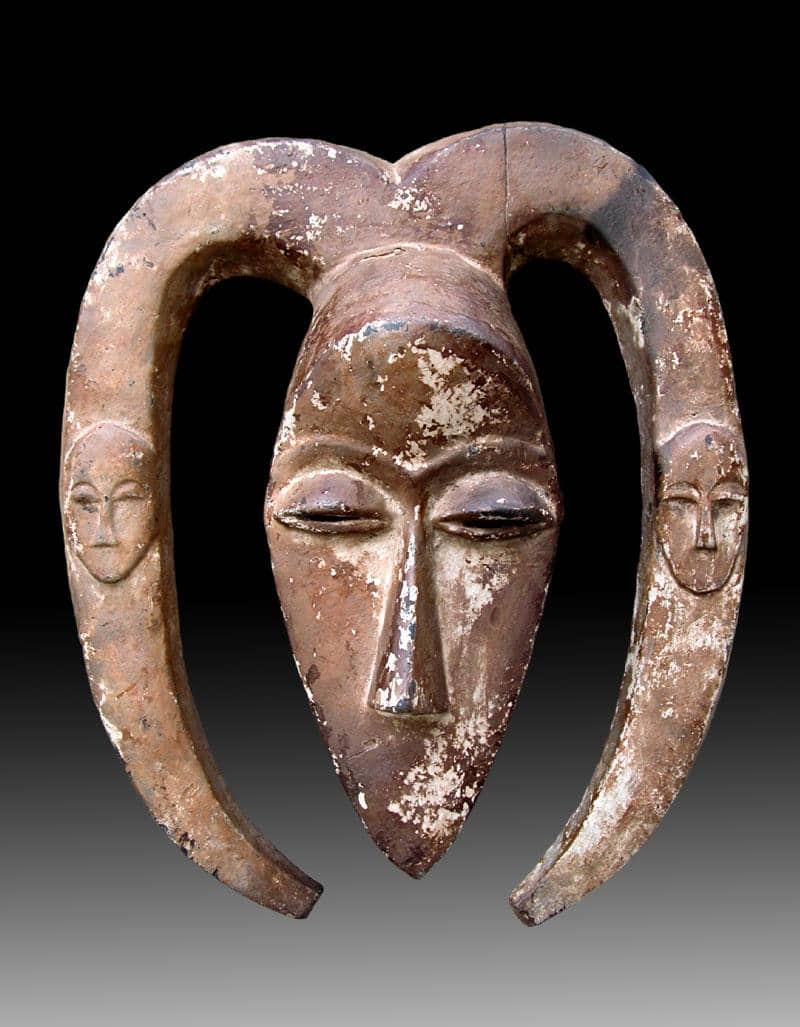
Source: Facebook
The Kwele masks depict the antelope whose flesh was consumed at the end of the "beete" ritual. The Kwele believe in witchcraft and blame it for all of their personal and social ills. Hence the ritual protects them from the power of witchcraft.
What do African tribal masks represent?
Most African masks signify a spirit, and it is believed that the spirits will possess the wearer.
What were African tribal masks used for?
African tribal masks are worn for grave reasons like encouraging human fertility, ensuring a good harvest, burial rituals, ancestral worship, protection from evil spirits, and rituals like rites of passage, among others.
What are the different types of African masks?
Face masks are the most common, but there are others like helmet masks, forehead masks, headdress masks, shoulder masks, and helmet crest masks.
What are the characteristics of African masks?
Some of the characteristics of African masks include enlarged facial features, symmetrical design and checkboard patterns that are twisted, parallel, and sometimes curved.
No doubt that the various African tribal masks are of significance to the communities that make them. They are an important part of Africa's ancient tribal traditions and are still being made and used today.
READ ALSO: Types of marriages in South Africa, contracts and benefits
Briefly.co.za recently published an article about the different types of marriages in South Africa and the advantages of each. Marriages are classified based on their purpose and how the two people's relationship is defined.
Nuptial contracts can exist between intending couples, and the conditions associated with these contracts vary depending on what the couples agree on. The types of marriages recognized by South African law include civil unions, civil marriage, and customary weddings.
Source: Briefly News




